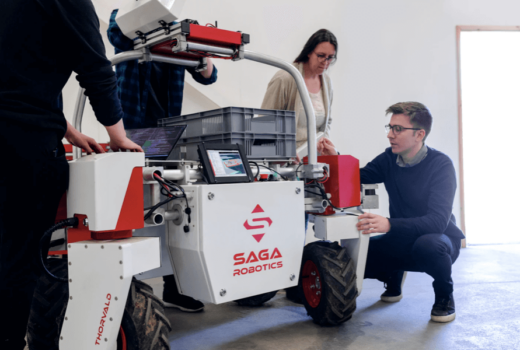Kennis versnelt oplossing van de crisis

“Knowledge is the main driver of today’s global economy,” aldusOECD Secretary-General Angel Gurría bij de lancering van de OECDInnovation Strategy in Parijs. “Countries need to harnessinnovation and entrepreneurship to boost growth and employment.This is the key to a sustainable rise in living standards.”
Leiderschap voor de grote R&D-thema’s
De regeringen van de kennisnaties hebben een sleutelrol om juistnu innovatie en kennis een fikse impuls te geven zegt de nieuwe OECstrategie. “The long-term nature of the investment needed to tacklechallenges such as climate change and infectious diseases, and therisks involved in developing commercial responses to thesechallenges, mean that some essential research often attracts littleprivate-sector support.”
Regeringen moeten hier leiderschap vertonen, aldus Gurria “andinvest in research in these areas, but also do more to co-ordinatetheir policies across borders. This involves promotinginternational mechanisms to share the cost of innovation throughco-operation and technology transfer between countries.”
Bijna heel de banengroei uit nieuwebedrijven
The current crisis makes it even more urgent to push throughnecessary reforms to increase the innovative capacity of societies.Governments battling to get their economies onto a sustainablegrowth path need to reduce administrative hurdles for new andexisting companies and make their tax policies more friendly toinnovation andentrepreneurship.”
Jonge bedrijven hebben daarbij een sleutelrol in het scheppen vande nieuwe banen die de economie nieuwe impulsen geven. “In theUnited States, for example, firms less than five years old haveaccounted for nearly all of the increase in employment in theprivate sector in the past 25 years.”
Onderwijsinvesteringen: wijs beleid
“Many governments raised spending on education and research aspart of their stimulus packages,” zegt secretarisgeneraal Gurría. “That was a wise move. Now, as they embark onfiscal consolidation, they should be careful not to jeopardiselong-term growth by cutting spending on activities that areessential for a country’s future.”
Hoe wijs dat beleid zou kunnen zijn, blijkt wel uit de langetermijn analyses van Andreas
Slimmer kennisbestel juist nu
De extra investeringen moeten meteen benut worden om hetkennisstelsel slimmer en fitter te maken. “Simple measures likecutting red tape, reforming universities to give them moreindependence and opening up access to more public researchdata – from mapping the human genome to weather maps- can all help to increase the efficiency of public spendingon innovation. In many countries, there is scope for rationalisingand simplifying policies that support innovation.”
Een nog sterker focus op de verbetering van het onderwijs,beroepsvorming en training en het publiekgefinancieerdeonderzoek is daarbij van essentiel belang om de productieveomslag te ontketenendienu nodig is na de crisis, aldus denieuwe OECD Innovation Strategy.
Meest Gelezen
Vrouwen houden universiteit draaiende, maar krijgen daarvoor geen waardering
Wederom intimidatie van journalisten door universiteit, nu in Delft
Hbo-docent wil wel rolmodel zijn, maar niet eigen moreel kompas opdringen
‘Burgerschapsonderwijs moet ook verplicht worden in hbo en wo’
Raad van State: laat taaltoets nog niet gelden voor hbo-opleidingen



